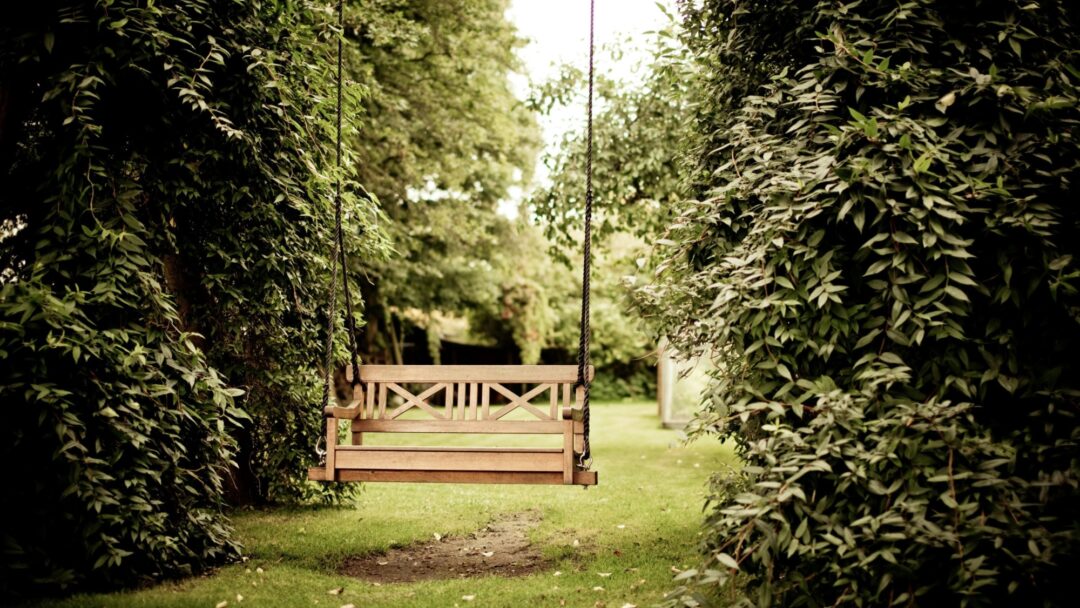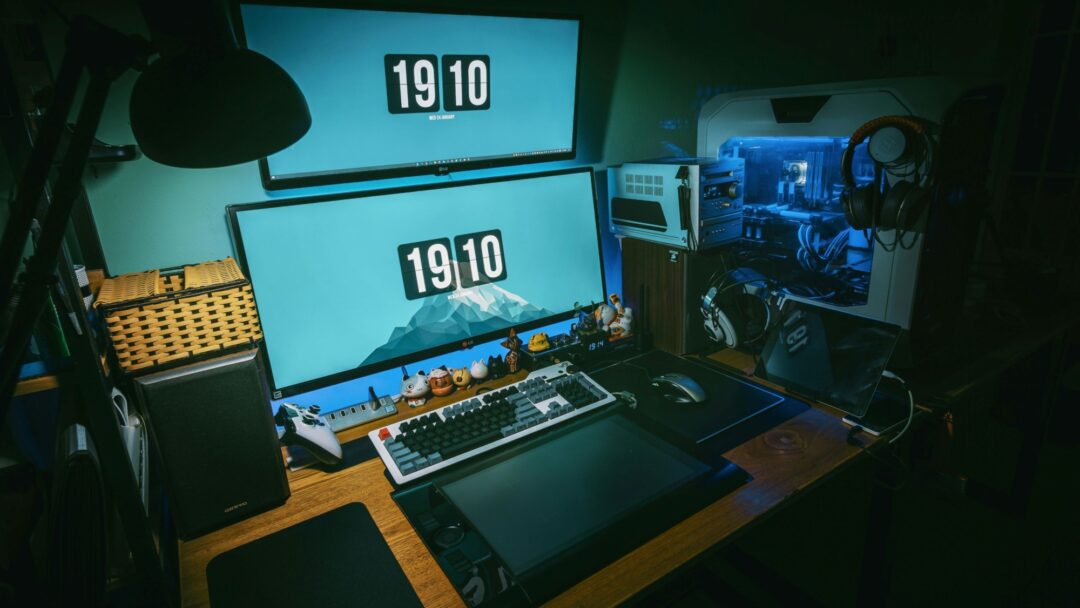Audio
Teresa Plane - 2RPH
Ablequest by
2RPH3 seasons
9 August 2024
14 mins
A veteran print disability broadcaster with macular degeneration shares her experiences.

Ablequest is a series of 15 minute programs from Sydney print disability radio 2RPH. The series examines developments in assistive technology and initiatives for those people living with a wide range of disabilities. Presented by Barbara Sullivan, Marni Roper and Elaine Wziontek.
In this edition: Nonagenarian Teresa Plane joined Radio 2RPH in 2016 as a volunteer reader after a distinguished career in nursing, caring for the terminally ill and sharing her extensive knowledge nationally and internationally.
Encroaching macular degeneration has not stopped Teresa from continuing her volunteer activities, and she still hosts her much-lauded radio programs on 2RPH. Elaine Wziontek spoke to Teresa about how she manages her busy life with her physical challenges.
Original air date: 09.08.24
Pictured on this page: Teresa Plane in the 2RPH studios
Speaker 1 00:04
With information on the latest developments in assistive technology and initiatives from the studios of 2RPH in Sydney, RPH Australia brings you Ablequest.
Hello, I'm Barbara Sullivan. Today's guest is Teresa Plane, a former nurse and pioneer of modern palliative care in Australia. She was also 2023 New South Wales Senior Australian of the Year. 2RPH listeners will recognise her voice as the host of two weekly radio programmes, ageing with attitude and meditative moments. Theresa joined Radio 2RPH in 2016 as a volunteer reader after a long and distinguished career in nursing, caring for the terminally ill and sharing her knowledge through international forums, universities and national conferences.
In her retirement, she has been a marriage celebrant, performed on stage and continued her advocacy work. These days, Theresa, now in her 90s, has her physical challenges with mobility issues and macular degeneration limiting her beloved reading time. Yet she still hosts the radio programmes and volunteers with singing groups at the Anzac Memorial Village at Narabeen in Sydney. Elaine Wziontek spoke to her as she was recuperating from a recent hip operation.
Speaker 2 01:35
Welcome to AbleQuest, Teresa.
Speaker 3 01:37
Thank you, Elaine. Happy to be here.
Speaker 2 01:41
So how did you first become involved with 2RPH?
Speaker 3 01:45
Well, it was way back about seven or eight years ago now, and it was Anzac Day. I'd been up early in the morning to go to the dawn service, and I was dial twiddling. And suddenly I heard history today. And I thought, well, that's very interesting. And I listened to that, and then I listened a bit longer, and I thought, Connie, that's good. And they were advertising for volunteers. And I was at that stage of my life where I was finding the long corridors of volunteering at Montefiore aged care, in Randwick, a bit much. And I thought, Oh, I've always wanted to do some work in radio. So as I went, I had an interview with Peter Worthington, and I've been with 2RPH ever since, and rusted onto listening.
Speaker 2 02:35
So I understand you started with Features Forum and then had the idea for pitching your own show. Can you tell us about that?
Speaker 3 02:42
Yes, well actually I said a bit before Features Forum, I started regularly with Janice Chaloner and what a teacher she was on reading the Sunday Telegraph. I did that regularly for quite a while. There I graduated on to Features Forum and the Australian and other readings. Then I got the idea that working in aged care I thought you know we should have a program for people over the age of 60-70 because Optimal Life, that is a really good program too but that's for a bit younger people. So I put together Aging with Attitude so that I could talk about all matters relating to people of a more advanced age. So that's what I've been doing. It became funded by the Department of Aging and Disability.
So I read a lot of things to do with government policy, informing people about new drug treatments, always talking about falls prevention and all that sort of thing and exercise, diet and elder abuse has been a big subject for me because sadly this is something that is ever increasing in our society and we really need to be very aware of it. And grief and bereavement, that's another one of my subjects that I'll talk about.
Speaker 2 04:13
And you first used to come into the studio and now you do it remotely.
Speaker 3 04:19
Oh, yes, because I loved coming into the studio because I felt that was like family, you know, you could always go get a cup of tea and have a chat in the prep room there, you know, I've made so many friends to RPH. Then I moved, I was living in Darlinghurst at the time, and then I moved to Marabine into the Anzac Memorial Village in independent living. And it was a bit of a hike into the studio. And then of course, the pandemic came. And that was the end of that. There was no more riding on three buses to raise it to get to Glebe. And our chaplain here, Bob, sets up a little Studio 5, 2RPH Studio 5. And it's a tiny little storage cleaning room off the main altar in the chapel.
In those days, it had all you couldn't imagine as many Army, Navy and Air Force uniforms. So the room was very well padded. And he set up a microphone and I started broadcasting from there. And that was wonderful, because I didn't have to travel. And then Horrors of Horrors, they moved all the props, as I said, all these uniforms into the museum, and I was left with bare walls. So then I had to do something about, you know, making it more studio like again. So we did that with rugs and things. That's where I do my work from every Tuesday at one o 'clock. One week, I'll record Aging with Attitude. And the next week, I will record two episodes of Metasite of Moments.
Okay, that came about because there was a space on a Sunday night. I thought, Oh, I listened to our pH a lot, I have to tell you. And we'd cross over to the BBC in the midst of a program, which was very annoying. So I went in to see the boss and I said, Hey, you know, I've got these 15 minutes. And I have that. So I got Metasite of Moments on Sunday night, which is 15 minutes. It's more about spirituality, relationships, empowering people. And that's what I'm trying to do the Sunday night is to empower people for the week ahead. I would love to say to you that we were talking about, you know, when I was doing Features Forum and reading.
These days, I have some macular degeneration at the age of 91. And I also have hearing aids. So all this now, I couldn't do any of these programs if it wasn't for Demetri Moratus, he's another volunteer at 2RH. I couldn't quite see the newsprint. And my eyes were deteriorating. So I started having to use, you know, enlargers. And without this wonderful magnifier, it's called Humanware... for anybody listening who has trouble reading the newspaper, there are two sizes of this magnifier. It's called Humanware. And you get it from Vision Australia. So marvellous for just reading ordinary things, but then to read the newspaper comfortably and to be able to read on air, the miracle, and you can just blow up the print. I can just read freely. So hopefully, I'll go on doing my programs for, well, some time.
Speaker 2 08:06
And you manage very well with your hearing aids.
Speaker 3 08:09
Now that's very interesting. I can't record with hearing aids in, so I have to remember to take the hearing aids out, and of course to have my Humanware set up there on the desk. And then I do try to read with some expression, because if I don't do that, people tend to fall asleep with my voice. I was really good at doing hypnosis and things like that.
Speaker 2 08:41
Oh, I see. So I understand you were bullied at school for your voice, but it's a very good radio voice.
Speaker 3 08:47
I was, I have to confess to you, my biggest dream in life was to work in radio. When I left school, you know, the idea of working in radio, I might have said that I was, you know, going to walk the streets or something. No, no, no, you've got to go nursing. I had noticed I had to go nursing. And I got a little job at 3CS in Colac, which was the local radio station. And I was reading the, the bills of sale for Billson, which is the big department store. And I thought that was wonderful. And I thought, Oh, you know, I'm going to have, I grew up, I was looking ahead into the future.
And I thought, Oh, I'd be able to, television is coming in. And I wanted to write. And I had a dream of perhaps as being a song and dance lady or I joined the little theater and I just thought of all of that. But that wasn't the day.
Speaker 2 09:47
But in later years, after a very accomplished nursing career and doing all sorts of things, you did accomplish few earlier dreams such as writing plays and performing on stage and community singing.
Speaker 3 09:58
That's right. We must never give up our dreams because I was in my 80s and I did a drama course, the dalo drama, and graduated and that was marvelous because they were all so young and here was this lady in her 80s doing this. Oh, it was so energising. Then I saw an ad. They wanted a lady to play an old lady to play a lady with dementia in a play called The Dancing Listens, which was on for short and sweet. It was on at the Tom Mann Theatre. So I rang the director and I said, look, you can save on the makeup. I've got, you know, the 80s plus face. Yeah, I would like to play the role.
Well, I auditioned for the part and yes, I got the part and I was nominated that year for the best actress in that series of Short and Sweet. I didn't win that, but I can tell you that was the hardest thing I ever did because I had to cry every night. I was on the stage. I had to cry on cue... which I lost to Somme when he was 25. So I used to think of my darling Andrew and tears would come falling down my face. But as a result of that whole experience with Short and Sweet, I've always wanted to write and I did. I wrote a play about two old ladies in a nursing home discussing their marriages and they were, you know, talking about their husbands and what one line that got a big laugh with one said to the other. I said, why didn't you go to Boston? She said to both never murder often. That got a laugh.
Speaker 2 11:59
So, you're really an inspiration, you're doing community work, I understand, and you...
Speaker 3 12:06
I think that 2RPH is the best thing that can happen to older people in my age group and younger living alone. It is a companion, it is the source of education, it is the source of entertainment, and I'm all for getting people to get radio, getting back into really listening, no ads, people speaking clearly, programmed in the area of home care, these places that are caring for elderly people who are choosing to stay at home, rather than go into nursing homes, tune in and listen and be educated and feel involved. I mean, Features Forum, I never miss it. It's a wonderful station.
Speaker 2 13:00
And you find time for community singing as well.
Speaker 3 13:04
I sing in the aged care home. I lead the... couple of aged care homes. I lead the community singing and that's great fun, you know, to get everybody involved and I belong to this Trans Voices as well.
Speaker 2 13:22
So Theresa, our time has run out, well and truly. Oh, there you go. I want to thank you so much for giving up your time. And congratulations on all your successes. And that wTeresa Plane, 91 years young, who presents Aging with Attitude and Meditative Moments.
Speaker 1 13:47
You have just been listening to Ablequest, a program that looks at developments in assistive technology and initiatives. From Elaine Wziontek and Barbara Sullivan, thank you for listening and goodbye till next program.
Continue listening

Blind Sports Australia CEO Matt Clayton speaks about its work with blind and vision impaired athletes across 21 sports.
Matt Clayton - Blind Sports Australia
Ablequest by 2RPH
5/5/2023
•13 mins
Audio

Vivid, Sydney's celebration of creativity, seen from a disability access focus by its director.
Gill Minervini - Vivid
Ablequest by 2RPH
19/5/2023
•14 mins
Audio

This program discusses dance movement therapy and how it works - featuring Cecilia King of the Dance Therapy Association.
Cecilia King - Dance Therapy
Ablequest by 2RPH
14 mins
Audio

What are the challenges of providing audio description on Oz TV? Hear Lauren Henley, Aust Federation of Disability Organisations.
Lauren Henley - Audio Description
Ablequest by 2RPH
16/6/2023
•14 mins
Audio

In Part 1 of a 2RPH interview, assistive tech expert David Woodbridge explores latest innovations to make everyday life easier.
David Woodbridge - Tech Update Part 1
Ablequest by 2RPH
30/6/2023
•14 mins
Audio

Features Robert Duff-Silsby of Luddi, Perth company developing assistive devices for all people and bodies.
Robert Duff-Silsby - Sexual Wellbeing
Ablequest by 2RPH
13 mins
Audio

In Part 2 of this conversation with 2RPH's Ablequest, expert David Woodbridge reviews latest assistive technologies.
David Woodbridge - Tech Update Part 2
Ablequest by 2RPH
28/7/2023
•14 mins
Audio

Matt Clayton of Blind Sports Australia and the Oz team's Chef de Mission, discusses the forthcoming World Blind Games in the UK.
Matt Clayton - World Blind Games
Ablequest by 2RPH
11/8/2023
•13 mins
Audio

Prof Kim Marriott of the Monash Assistive Technology and Society Centre, talks about the purpose and work of the Centre.
Kim Marriott - Monash Assistive Technology and Society Centre
Ablequest by 2RPH
25/8/2023
•13 mins
Audio

Ablequest features an interview with Serena Ovens, new CEO of Assistive Technology Supplies Australia or "ATSA".
Serena Ovens - Assistive Technology Supplies Australia
Ablequest by 2RPH
14 mins
Audio

Part 1 of an interview on the voice-activated app, Bindi Maps.
Anna Wright - Bindi Maps (Part 1)
Ablequest by 2RPH
14 mins
Audio

This is Part 2 of an interview with Dr Anna Wright, explaining how Bindi Maps works.
Anna Wright - Bindi Maps (Part 2)
Ablequest by 2RPH
14 mins
Audio

Artist Ebony Wightman of disability-led We Are Studios talks about art and challenge.
Ebony Wightman - We Are Studios
Ablequest by 2RPH
20/10/2023
•13 mins
Audio

Prof. Leeanne Carey discusses the SENSe program, her team's world-first therapy to help stroke survivors.
Leeanne Carey - SENSe Therapy
Ablequest by 2RPH
2/11/2023
•13 mins
Audio

Youthworks Accessibility Minister Bec Baines talks of making church accessible to young people with disabilities.
Bec Baines - Youth and Worship
Ablequest by 2RPH
16/11/2023
•14 mins
Audio

Nikki Hind, Australia's first blind fashion designer, discusses her work.
Nikki Hind: Blind Grit
Ablequest by 2RPH
1 December 2023
•14 mins
Audio

Dr Dimity Williams, family GP, recommends spending more time in nature - and a "green hour" each day.
Green Hour: Dr Dimity Williams
Ablequest by 2RPH
5 December 2023
•14 mins
Audio

Imagine sitting in a wheelchair for hours, being unable to move your fingers or arm to do simple things like pick up a glass.
Konstanze Hager - Bateo
Ablequest by 2RPH
Konstanze Hager - Bateo
•14 mins
Audio

Action Audio is a new language being created to transcend sport.
Machar Reid - Action Audio
Ablequest by 2RPH
Machar Reid - Action Audio
•14 mins
Audio

What a difference one person with experience, passion and energy can make to many lives.
Julie Ross-Edwards - Head High
Ablequest by 2RPH
Julie Ross-Edwards - Head High
•14 mins
Audio

Driver educator outlines what's needed for a person with disability to get a driver's licence.
Ronak Shah: on-road driving education
Ablequest by 2RPH
12 January 2024
•14 mins
Audio

Vision Australia's Christo Sarantakis talks of his life, blindness and assistive tech changes.
Christo Sarantakis of Vision Australia
Ablequest by 2RPH
26 January 2024
•14 mins
Audio

Introducing Australia's first pictureless feature film, TOUCH, showing in Sydney.
Majella Knobel: "Touch" - open air movie
Ablequest by 2RPH
9 February 2024
•14 mins
Audio

An expert discusses the use of horticultural therapy for people with disabilities.
Steven Wells: horticultural therapy
Ablequest by 2RPH
23 February 2024
•14 mins
Audio

Features articles on latest blind-assistive tech including a new bus app and smart ear buds.
Assistive tech news catchup
Ablequest by 2RPH
8 March 2024
•14 mins
Audio

Features an innovative hospitality industry training program for people with disabilities.
Saraya O'Connell - Hotel Etico Independence Program
Ablequest by 2RPH
22 March 2024
•14 mins
Audio

Guests discuss the Obi robotic dining assistant for people with upper arm disabilities.
Hugh Kingley and Rachel Dekkar: Obi
Ablequest by 2RPH
19 April 2024
•14 mins
Audio

A spy-themed computer program tackles the mystery of social encounters - outlined by its company's CEO.
Kathleen Davey - Social Science Translated
Ablequest by 2RPH
3 May 2024
•14 mins
Audio

A Sydney organisation delivers creative arts and life skills to people with disabilities.
ChoppA Green - Studio Artes
Ablequest by 2RPH
17 May 2024
•14 mins
Audio

An award-winning Central Coast NSW disability service shares its successful strategies.
Lonestar Makoni - Breaking Barriers Disability Services
Ablequest by 2RPH
31 May 2024
•14 mins
Audio

Part 1 of a conversation with an Australian neuroscience research pioneer about benefits of music in brain injury recovery.
Professor Sarah Wilson (part 1)
Ablequest by 2RPH
14 June 2024
•14 mins
Audio

Part 2 of a conversation with a leading neuroscientist of benefits of music in brain injury recovery.
Professor Sarah Wilson (part 2)
Ablequest by 2RPH
28 June 2024
•14 mins
Audio

A CEO talks about his company's award-winning assistive physical therapy device.
Justin Keenan - LusioMate
Ablequest by 2RPH
12 July 2024
•14 mins
Audio

Information about a program teaching good cyber-security practices to make daily life safer.
Jess Wilson: Be Connected
Ablequest by 2RPH
26 July 2024
•14 mins
Audio

A veteran print disability broadcaster with macular degeneration shares her experiences.
Teresa Plane - 2RPH
Ablequest by 2RPH
9 August 2024
•14 mins
Audio

The founder of a blind-assistive technology company shares latest developments.
Peter Ford - Control Bionics (part 1)
Ablequest by 2RPH
6 September 2024
•14 mins
Audio

Part 2 of an interview with the head of an innovative blind-assistive technology company.
Peter Ford - Control Bionics (part 2)
Ablequest by 2RPH
20 September 2024
•13 mins
Audio

Looks at a project to better inform refugee and migrant women on AI.
Good Things - Jess Wilson
Ablequest by 2RPH
4 October 2024
•14 mins
Audio

An expert with lived experience corrects some widespread misconceptions about stuttering.
Dale Williams - Stuttering Awareness Day
Ablequest by 2RPH
18 October 2024
•14 mins
Audio

An inventor discusses his an innovative cane tip to help people with blindness or low vision.
Peter Rickards - Sensaball
Ablequest by 2RPH
15 November 2024
•13 mins
Audio

Part 1 of an interview with an Australian expert on low-vision-assistive technology, on AI and other developments.
David Woodbridge (part 1)
Ablequest by 2RPH
29/11/2024
•14 mins
Audio

Conclusion of an interview with a leading Australian expert on blind-assistive technology.
David Woodbridge (part 2)
Ablequest by 2RPH
13 December 2024
•14 mins
Audio

Looks at the leading stroke treatment work of the Royal Rehabilitation Hospital, Ryde NSW.
Jason Redhead and Graham Cooper of Royal Rehab Ryde
Ablequest by 2RPH
10 January 2025
•14 mins
Audio

An innovative social media platform aims to address isolation and loneliness in the disability community.
Steve Bear - Alvie
Ablequest by 2RPH
7 February 2025
•12 mins
Audio

Australia's largest provider of Auslan sign services outlines its important work.
Brett Casey - Deaf Connect
Ablequest by 2RPH
21 February 2025
•14 mins
Audio

Looks at an Australian organisation's work at helping men seek help and build self-awareness.
Tommy Herschell - Find Ya Feet
Ablequest by 2RPH
7 March 2025
•14 mins
Audio

A speech pathoplogist discusses her work with young people's complex communication needs.
Denise West - Scope
Ablequest by 2RPH
21 March 2025
•14 mins
Audio

A vision-impaired disability rights advocate talks of her work and learning podcast skills.
Freya Wolf
Ablequest by 2RPH
4 April 2025
•14 mins
Audio

A leading Australian eye researcher talks of his team's work in creating new hope for people with retinal damage.
Raymond Wong - Centre for Eye Research Australia
Ablequest by 2RPH
18 April 2025
•14 mins
Audio

A wheelchair-using business owner, facilitator and car rally driver shares experiences and insights.
Mel Harrison - Sitting Low, Reaching High
Ablequest by 2RPH
2 May 2025
•13 mins
Audio

Disability Pride Month in July promotes awareness about people with disability and also celebrates individuals with disability.
Hannah Solomons - Sydney Disability Pride
Ablequest by 2RPH
Hannah Solomons - Sydney Disability Pride
•14 mins
Audio

Deb Roach is a three-time pole dancing world champion yet she has only one arm.
Deb Roach
Ablequest by 2RPH
Deb Roach
•13 mins
Audio

Being in nature is good for you whether it is being in the garden or walking along the beach.
Kayte Kitchen - Admirari Nature Therapy
Ablequest by 2RPH
Kayte Kitchen - Admirari Nature Therapy
•14 mins
Audio

Music can evoke emotions that bring back memories and the same is true for people living with dementia.
Zara Thompson - Music Therapy
Ablequest by 2RPH
Zara Thompson - Music Therapy
•14 mins
Audio

Laura Boccanfuso is founder and CEO of Van Robotics, a social robotics company based in South Carolina in the United States.
Laura Boccanfuso - Van Robotics
Ablequest by 2RPH
Laura Boccanfuso - Van Robotics
•14 mins
Audio

Two years ago Maggie O'Connell, in her mid 20's never had a full time job.
Maggie O'Connell - AFP
Ablequest by 2RPH
Maggie O'Connell - AFP
•14 mins
Audio

Julie Ross-Edwards, founder of Head High Disability Services, returns to Ablequest to speak more about Head High's philosophy and special approach.
Head High (Update)
Ablequest by 2RPH
Head High (Update)
•13 mins
Audio

David Woodbridge, an expert in assistive technology for people with no or low vision, is a regular guest on Ablequest.
David Woodbridge
Ablequest by 2RPH
David Woodbridge
•14 mins
Audio

Pete Horsley is the Founder of Remarkable, a global start up and initiative of the Cerebral Palsy Alliance.
Pete Horsley - Remarkable Disability Tech Summit
Ablequest by 2RPH
Pete Horsley - Remarkable Disability Tech Summit
•14 mins
Audio